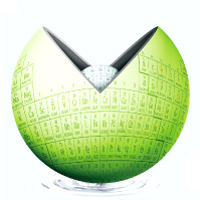
Published for geochemistry community from Geochemical Society of Japan.
Effects of metal ions and pH on the formation and decomposition rates of di- and tri-peptides in aqueous solution
Geochemical Journal, Vol. 48, No. 2, P. 219-230, 2014
ABSTRACT
The recent discovery of active deep-sea hydrothermal systems venting high-pH fluids suggests that the prebiotic chemistry of the hydrothermal systems of early Earth may have been more diverse than previously thought. To determine the most favorable conditions for prebiotic oligomerization, the effects of metal ions (Ca2+, Mg2+, Zn2+, Fe2+, Mn2+, and Cu2+) and pH on the formation and decomposition rates of glycylglycine (GlyGly), glycylglycylglycine (GlyGlyGly), and diketopiperazine (DKP) in aqueous solution were investigated. Glycine (Gly) solutions containing metal ions were heated for 1–74 days at 140°C under various pH conditions and the samples were analyzed by high-performance liquid chromatography. GlyGly and DKP were produced in all samples regardless of the presence or absence of metal ions. GlyGly yields were higher under basic conditions (pH 9.8–9.9) than under acidic or neutral conditions. Moreover, GlyGly yields in the presence of Cu2+ and Zn2+ were higher than in the absence of Cu2+ and Zn2+; in the presence of metal ions other than Cu2+ and Zn2+, GlyGly yields were lower. The dimerization rate constant of Gly (k1) increased in the presence of Cu2+. GlyGlyGly was only produced in samples with Cu2+ and the yield was 5 times higher under basic conditions (pH 9.8) than under acidic (pH 3.4) or neutral (pH 7.1) conditions. However, other metal ions inhibited prebiotic peptide synthesis by catalyzing hydrolysis or chelation with amino acids. These results reflect the high stability of Cu2+ complexes with amino acids or peptides in the salt-induced peptide formation reaction, particularly at high pH. Although elongation of oligopeptides was not favored, formation of metal–amino acid or metal–short peptide chelates may have facilitated primitive biological functions and expanded prebiotic reaction fields because of their mobility in the Earth’s early oceans.KEYWORDS
salt-induced peptide formation, metal ions, copper (II) complex with glycine, hydrothermal system, prebiotic chemistry, origin of life- Published : 2014-03-20
- Released on J-STAGE : 2014/03/28
- Received : 2013/06/12
- Accepted : 2013/12/04
- DOI : https://doi.org/10.2343/geochemj.2.0300
- J-STAGE URL : https://www.jstage.jst.go.jp/article/geochemj/48/2/48_2.0300/_article/-char/ja
- J-Online ISSN: 1880-5973
- Print ISSN : 0016-7002
- ISSN-L : 0016-7002
All Issues
- Vol.59, 2025
- Vol.58, 2024
- Vol.57, 2023
- Vol.56, 2022
- Vol.55, 2021
- Vol.54, 2020
- Vol.53, 2019
- Vol.52, 2018
- Vol.51, 2017
- Vol.50, 2016
- Vol.49, 2015
- Vol.48, 2014
- Vol.47, 2013
- Vol.46, 2012
- Vol.45, 2011
- Vol.44, 2010
- Vol.43, 2009
- Vol.42, 2008
- Vol.41, 2007
- Vol.40, 2006
- Vol.39, 2005
- Vol.38, 2004
- Vol.37, 2003
- Vol.36, 2002
- Vol.35, 2001
- Vol.34, 2000
- Vol.33, 1999
- Vol.32, 1998
- Vol.31, 1997
- Vol.30, 1996
- Vol.29, 1995
- Vol.28, 1994
- Vol.27, 1993
- Vol.26, 1992
- Vol.25, 1991
- Vol.24, 1990
- Vol.23, 1989
- Vol.22, 1988
- Vol.21, 1987
- Vol.20, 1986
- Vol.19, 1985-1986
- Vol.18, 1984
- Vol.17, 1983
- Vol.16, 1982
- Vol.15, 1981
- Vol.14, 1980
- Vol.13, 1979
- Vol.12, 1978
- Vol.11, 1977
- Vol.10, 1976
- Vol.9, 1975
- Vol.8, 1974
- Vol.7, 1973
- Vol.6, 1972-1973
- Vol.5, 1971
- Vol.4, 1970-1971
- Vol.3, 1969-1970
- Vol.2, 1968
- Vol.1, 1966-1967
Current Issue:
Stats:
Impact Factor: 1.6 (2024)
Submission to final decision: 9.6 weeks (2022)




